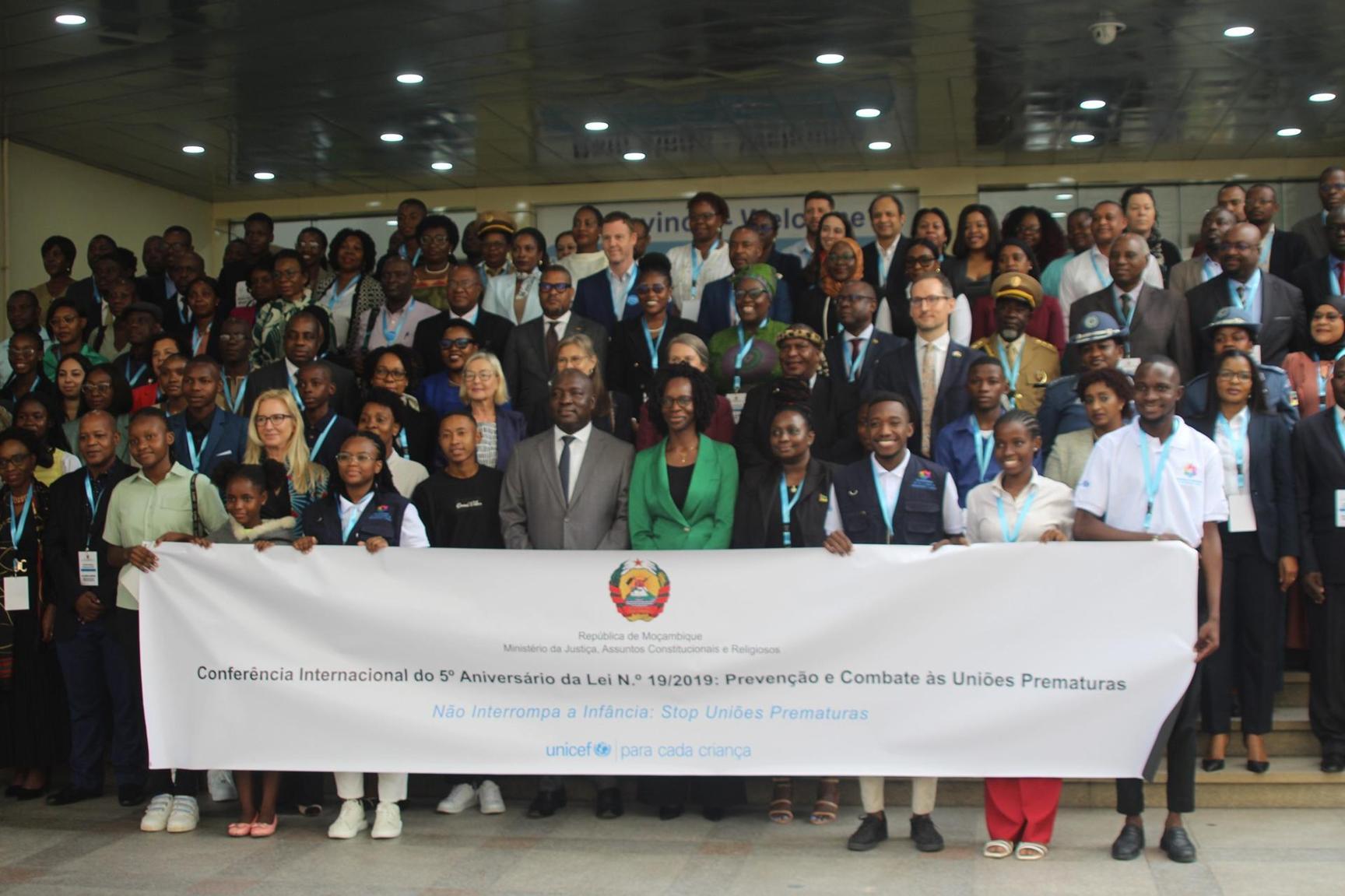Africa-Press – Mozambique. At least 2,259 girls have been rescued from premature unions and reintegrated into the education system in Mozambique since 2019, the year in which legislation against the phenomenon was strengthened, the United Nations Children’s Fund (UNICEF) announced on Wednesday.
“Rates of premature unions fall significantly as girls’ educational level increases,” UNICEF representative in Mozambique, Mary Eagleton, observed during an event celebrating the fifth anniversary of the Law to Prevent and Combat Premature Unions in the Mozambican capital, Maputo, yesterday.
According to the UNICEF representative, official data from 202 indicated that one in every two girls was “married” before the age of 18, which corresponds to 4.3 million girls, and one in every eight before the age of 15, which corresponds to one million girls, in a country currently of just over 30 million people.
“Among girls whose sexual debut occurred at the age of 12, 89% were married before the age of 18. Similarly, 90% of girls who had their first child at the age of 13 were married before the age of 18,” Mary Eagleton added, congratulating the Mozambican government for the “progress achieved” in the fight against premature unions, especially with the approval of the law in 2019.
Despite the strengthening of the legislation, which now includes prison sentences and fines, the Mozambican government recognizes that there are still “difficulties”.
The Minister of Justice, Constitutional and Religious Affairs, Mateus Saize, said in his opening speech at the ceremony that socioeconomic and cultural factors, “particularly the low level of education and absolute poverty”, are “among the main causes of the growing number of premature unions in Mozambique”.
Justino Tonela, permanent secretary of the Ministry of Justice, Constitutional and Religious Affairs, explained that “cases of complaints” only come to the attention of the courts when “there is a violation of agreements between families”.
“Often, government and police authorities become aware of these practices when fines are not paid and they report them to the authorities (…). When there is consensus between families, they usually request that the complaint be withdrawn,” Tonela noted.
According to data from 2011, early marriages are prevalent mainly in rural areas in Mozambique and, above all, in the north of the country, with the provinces of Cabo Delgado and Nampula having the highest numbers of cases – 62% and 61%, respectively.
The Law to Prevent and Combat Early Marriages, in force since October, 2019, forbids marital unions involving people under the age of 18, punishing adults who marry a child with a prison sentence of up to 12 years and a fine of up to two years.
The penalty also applies to adults who participate in the preparations for the engagement and to any adult who agrees to live in a union arranged by other people, when they are aware that the partner is under the age of 18.
Sanctions are also provided for public officials, religious leaders and traditional leaders who celebrate marriages involving minors under the age of 18, with public servants involved in such cases being liable to a sentence of up to eight years in prison.
For More News And Analysis About Mozambique Follow Africa-Press






